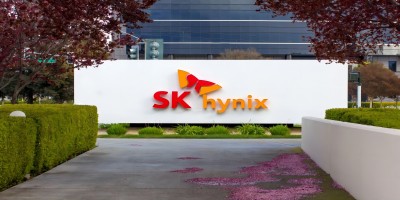Malta, the Mediterranean island nation, has announced a major investment: a €8 million ($8.5 million) injection into the University of Malta to build a new semiconductor specialist center.
Malta, the Mediterranean island nation, has announced a major investment: a €8 million ($8.5 million) injection into the University of Malta to build a new semiconductor specialist center. Silvio Schembri, Malta's Minister for Economy, Enterprise and Strategic Projects, said the investment, with 50 per cent of the funding coming from the EU, aims to promote knowledge dissemination, stimulate innovation and strengthen synergies between academia and industry.
Announcing the plan, Minister Schembri stressed: "This investment goes far beyond the infrastructure level, it is an important investment in Malta's economic future. We will focus on the semiconductor sector with the aim of creating more well-paid jobs in Malta and increasing our competitiveness in the global market."
Minister Schembri further noted that the Maltese government is launching a process aimed at developing a comprehensive semiconductor development strategy. The strategy will detail how Malta can become more deeply integrated into the global semiconductor ecosystem in order to seize economic opportunities and address geopolitical challenges.
The government plans to begin consultations with various stakeholders in early 2025 and expects to finalize the final strategy by the end of the same year.
George Gregory, head of Enterprise Malta, Malta's economic development agency, said: "The semiconductor industry accounts for 18% of Malta's manufacturing Labour market, equivalent to 4,280 full-time jobs. Annual exports from the sector exceed €1.2 billion and account for more than 30% of Malta's total merchandise exports."
Build Malta into a Silicon Valley-style ecosystem
The Semiconductor Competence Centre is planned not only to strengthen Malta's position in the global semiconductor industry chain, but also to promote the formation of a stronger ecosystem, similar to the "Silicon Valley" model.
I observed that since the 1990s, numerous government and trade agencies have sent delegations to the Bay Area in northern California, known as Silicon Valley. Their goal is to replicate Silicon Valley's successful tech ecosystem locally, or to help companies in the region achieve similar rapid growth.
That's why, in the mid-2010s, I co-founded a magazine with Richard Wallace, the former editor in chief of EE Times, focused on global attempts to create a "new Silicon Valley." Their discussions transcend geographical boundaries and focus more on initiatives, theories, and impulses. In addition, they have spoken at numerous conferences such as the International Association of Science Parks (IASP), dissecting the secrets behind Silicon Valley's success and sharing insights from their global coverage.
So when Silicon Catalyst and Enterprise Malta invited me to Malta to attend the Malta chapter of the island nation's first Global Semiconductor Conference, I started thinking hard about what key signs I should look out for. The conference brings together key European and U.S. executives from the Silicon Catalyst ecosystem to deliver presentations.
Malta has laid the foundation for a new era in the chip industry. The country's roots in the chip industry can be traced back to ST, which has been operating in Malta since the 1980s and has become an important part of its global advanced packaging technology. Currently, ST employs around 1,800 people in Malta.
Anchor companies are critical to building successful tech ecosystems, similar to Intel in Israel in the 1970s, IBM and TI(Texas Instruments) in Sofia-Antipolis, France, from the 1990s to the 2010s, and TI in Bangalore, India. Not only are these companies the main customers for early-stage start-ups, but their former employees often form the backbone of the start-up wave, launching new ventures.
During my visit to Malta, I came across a start-up founded by former ST employees: 4JM Solutions. After leaving ST in 1987, Joseph Muscat began his entrepreneurial journey. Among its first customers are ST and Advantest. Today, 4JM Solutions has grown into a successful business that provides professional service, repair and training to ST and other customers. In addition, 4JM Solutions is expanding its business scope and starting to upgrade older equipment to incorporate automation technologies for Industry 4.0.
The key to building a successful Silicon Valley-like ecosystem is to integrate the right talent/knowledge resources, financial support, and customer networks, while also requiring strong leadership and forward-looking vision from local governments (not just incentives, though these can be very beneficial). Anchor companies often act as key customers for early-stage startups. In addition, the leadership, vision and initiative of local governments are equally crucial.
What do chip industry experts say about Malta?
At the Malta Global Semiconductor Conference, there were not only official statements highlighting the importance of Malta, but also a series of specific sessions to delve into why Malta has the potential to become the next hub of the Silicon Valley ecosystem.
At the panel discussing the topic, Roberto Zafalon, Director of European Institutional Relations, representative of the European Semiconductor Industry Association (ESIA) and ST, noted that ST's operations in Malta have attracted a pool of international talent since 1981, with 40% of its 1,800 employees coming from outside Malta.
He pointed out that attracting the right technical talent from countries such as Malaysia and India is a convenient way. He further added that the optimisation of the immigration policy is crucial for the introduction of the required skills, the introduction of the start-up visa, and other related policy initiatives, which are key factors in making Malta a base of excellence.
During the panel discussion, Jo de Boeck, imec's Executive Vice President and Chief Strategy Officer, highlighted Malta's strong "can do" spirit, which has given the country's agile startups a competitive edge. Christophe Frey, General manager of Arm France and Vice President of EU Affairs, also noted that Malta's appeal stems not only from its ambition, but also from its visionary leadership. Frey believes that Malta's agility and ambition is particularly positive in an environment where many countries are stuck in inertia, and that it could be a catalyst for the rest of Europe.
Sean Redmond, managing partner at Silicon Catalyst U.K., noted that hardware innovation has become particularly critical amid the global wave of artificial intelligence. Malta offers an environment to foster such innovations, including ST's advanced packaging projects in Malta. Redmond also stressed that Malta's geographical location is advantageous and effectively connects Europe and North Africa, facilitating regional cooperation.
Malcolm Penn, Chairman and CEO of Future Horizons, also elaborated on his views on Malta. He believes that innovation is not limited by geography, and that innovation can be born anywhere in the world. The key is to create an atmosphere - an environment that inspires and fosters innovation.
During the conference, Redmond did highlight Malta's strengths several times: the island has more than 300 sunny days a year, creating an ideal environment for startups to grow. In addition, the high ambition, flexibility and enterprising spirit of the local residents, as well as the strong vision and leadership demonstrated by the local government and government agencies, have contributed to the excellent development momentum.
After the conference, an exchange with Lance Bell, Silicon Catalyst's strategist, further broadened our horizons. Bell noted that Silicon Catalyst's ChipStart EU project is open to all of Europe, not Malta or the Mediterranean. Thanks to EU financial support, any business on the continent has the opportunity to participate, whether the start-up is based in Germany or Malta. Malta is in an excellent timing and geographical position to provide the ideal conditions for the rapid growth of European chip start-ups.
* Disclaimer: This article is from the Internet, if there is any dispute, please contact customer service.



